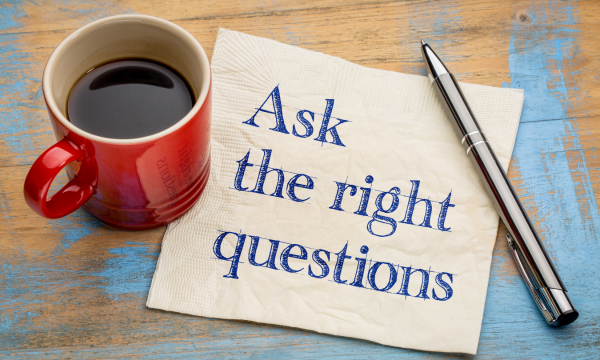
Market research is all about understanding your audience, but it also includes a deep dive into the broader market landscape, including trends affecting your industry and top competitors within your market. Market research is vital to bolstering marketing and sales efforts. But where do you begin?
What Is Market Research?
Market Research involves gathering data and information to help you identify your target audience, understand their wants and needs, and ultimately shape your messaging and offerings to fit the demands of your market.
The information you gather can include customer feedback about your current products, services, events, or other offerings; insights into your competitors; perception of your brand versus competitors; and more.
Once you’ve captured the right market research data, you can leverage it to make strategic decisions about your products or services, craft more targeted marketing and sales messaging, improve the customer experience, advance your company’s position within your market, and generally help guide business decisions within your company.
Benefits of Market Research
There are numerous benefits to implementing market research. With the right tactics, market research can:
- Help you identify your target audience and gain a deeper understanding of their needs
- Provide insights into current market trends and your top competitors
- Guide product development and identify new market opportunities
- Increase engagement, generate feedback, and build customer loyalty
- Improve marketing and sales channel tactics
- Help you identify business risks, challenges, and opportunities for growth
- Provide a framework for measuring KPIs and ROI
- Allow you to make data-driven, strategic decisions to grow your business
Marketing Research Process Examples
Market research is a critical step to help businesses make informed decisions about their products, services, and market positioning. No matter how large a company may be, there’s always room for improvement.
Take Apple, for instance. To understand why they were losing iPhone customers and Android sales were booming, Apple leveraged market research to determine why consumers decide to buy iPhones (or not).
Coca-Cola is another company that conducts market research to inform business decisions – sometimes to its own detriment. Based on a study in the 1980s, Coca-Cola decided they should completely alter the recipe for Coke and introduce “New Coke.” While the research seemed to support the decision, their market research strategy was flawed, leading to a pretty disastrous decline in sales.
Even the biggest and most competitive brands are looking for ways to grow their businesses, and sometimes, they get it wrong. To help ensure your market research is a success, follow the steps outlined below, and carefully consider how you’re building your study.
6 Steps of the Marketing Research Process
Ready to dive into market research? Follow this six-step process to help you get started, and check out these tips for creating a successful market research strategy.
1. Identify and Define the Problem
The market research process begins by identifying your research question or problem and defining your goals and objectives. Think of your research question as a SMART goal (specific, measurable, achievable, relevant, and time-bound) to help you dig deep.
2. Develop Your Research Approach
In this step, you’ll develop a plan for designing your study and collecting and analyzing your data. This involves:
- Establishing a budget
- Formulating hypotheses
- Evaluating external factors like the economy or environment
- Choosing your data collection methods, including surveys, interviews, focus groups, etc.
- Identifying a sample size and sampling technique
- Determining your methods for analyzing the data
3. Collect the Data
Data can be collected using online surveys, phone interviews, focus groups, or in-person one-on-one interviews. Designing a survey or questionnaire is considered the most important step in any research survey process.
Question design takes a lot of thought and time. We like to say, "If you put garbage in, you'll get garbage out." This means that if the questions are bad, the data will be bad as well. During the survey research design, keep in mind the sampling methods and data analysis factors you intend to use.
Don't forget to test your survey before to ensure you're fielding the correct data. Thankfully, with the help of an online survey tool, this step is relatively painless.
4. Analyze the Data
Once you’ve collected the pertinent data, it’s time for analysis. Here, you should be able to leverage any online survey tools you’ve used to collect data to help you analyze it quickly. Analyzing your data requires looking for trends, patterns, and insights that can help you answer your research question.
5. Interpret Your Results
The results you generate during data analysis should be viewed from the lens of your research question and applied to your business. Based on your findings, you can draw conclusions about future business decisions, from product development to pricing strategies and marketing campaigns.
At this stage, you’ll use all the rich data you’ve collected to create a go-forward market strategy that’s ready to be shown to your broader teams.
6. Present Your Findings and Take Action
The final step in the market research process is to outline your research process to establish credibility, report your survey research findings, and present your recommendations and call to action based on these findings.
Ready to get started with your market research? Start your study off right with tools to help you collect and analyze your data!






